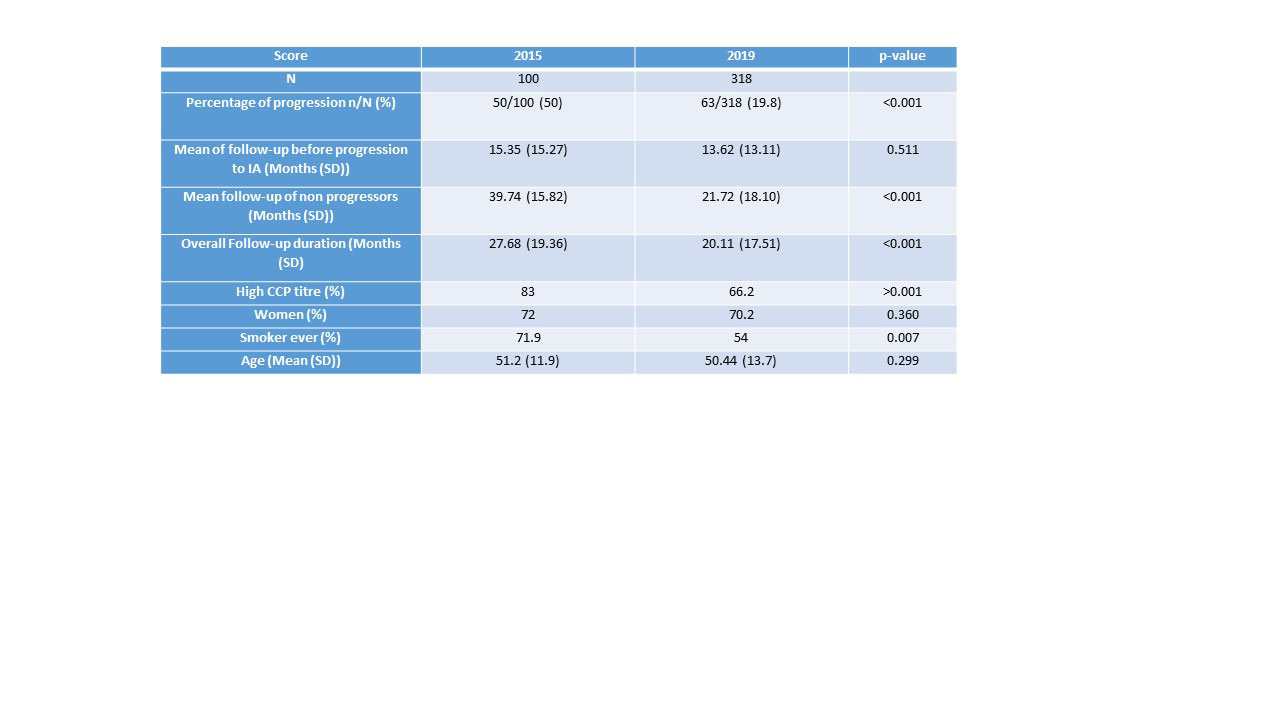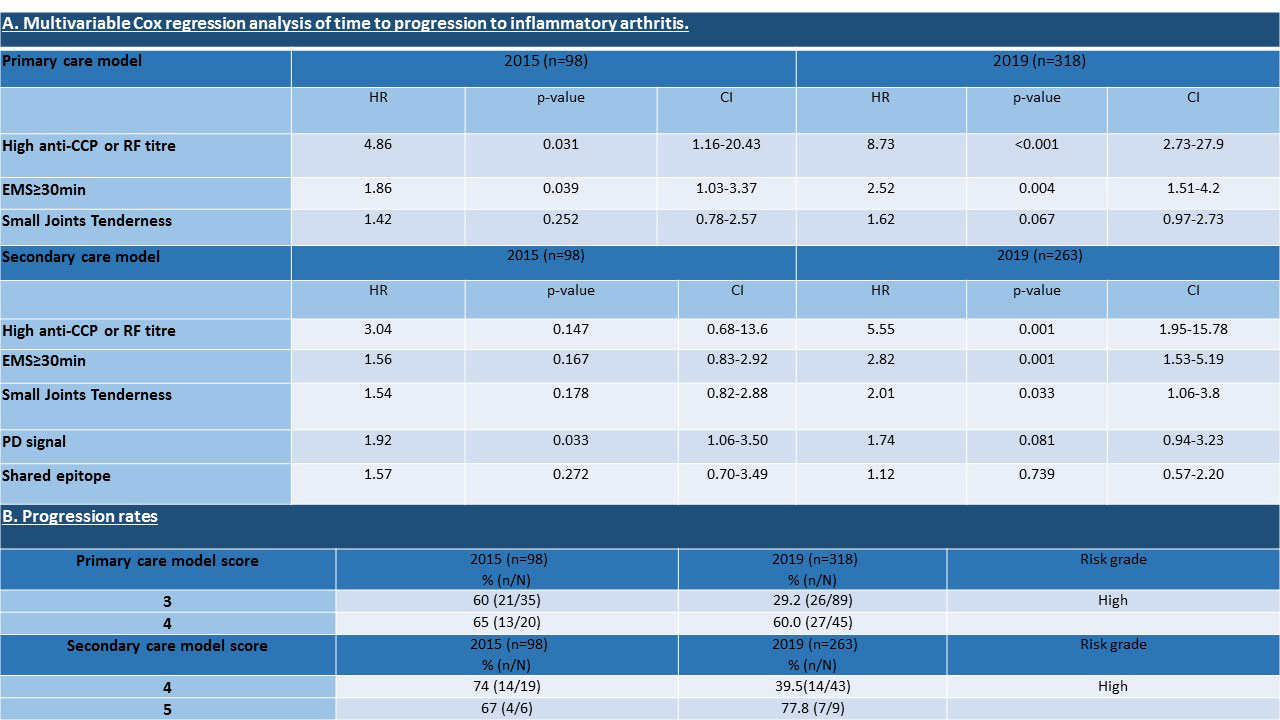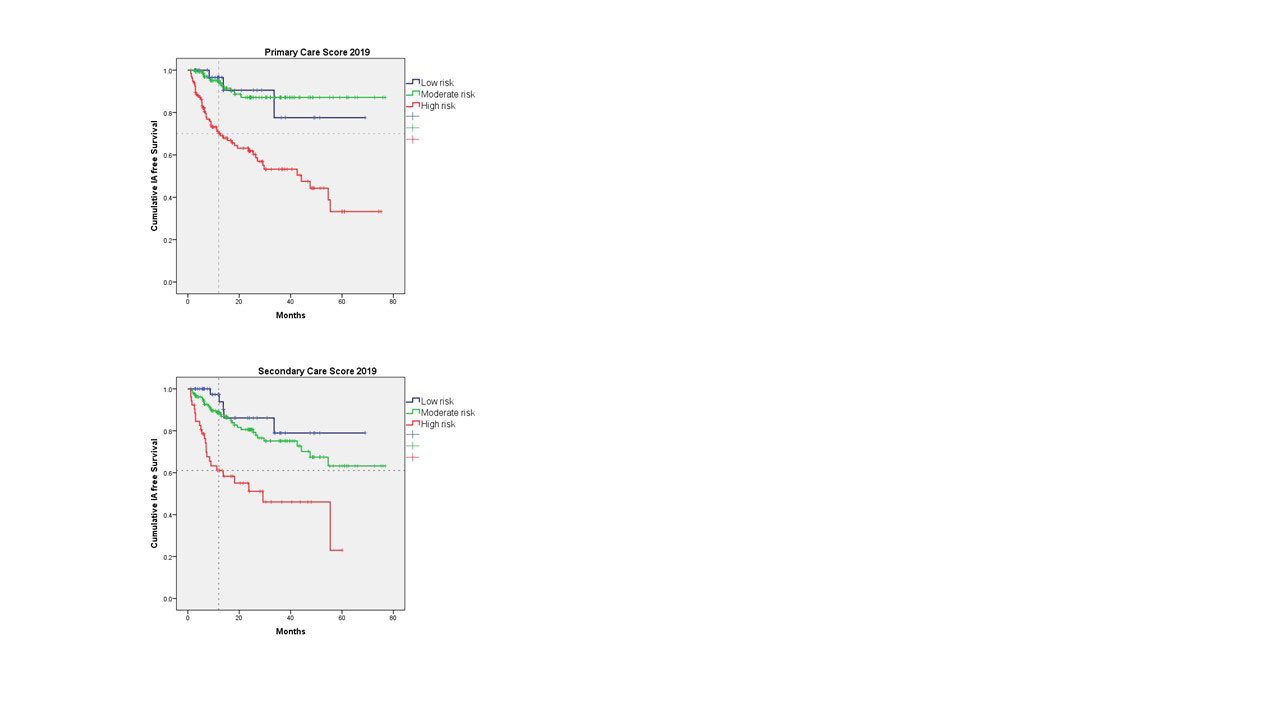Session Information
Date: Sunday, November 10, 2019
Title: RA – Diagnosis, Manifestations, & Outcomes Poster I: Risk Factors, Predictors, & Prognosis
Session Type: Poster Session (Sunday)
Session Time: 9:00AM-11:00AM
Background/Purpose: Risk scores for progression have been described in 2015 in a cohort of 100 anti-cyclic citrullinated peptide (anti-CCP) positive individuals at risk of developing Inflammatory Arthritis (IA) (Rakieh, 2015). The first score, designed for primary care, was based on anti-CCP and rheumatoid factor (RF) titres, small joints tenderness and early morning stiffness (EMS). A second score developed for secondary care added power Doppler presence (PD+) and/or at least one allele positive for the shared epitope (SE+).
The objective is to validate previous data by scoring risk factors in a new cohort of 318 individuals.
Methods: Individuals at risk of developing IA selected by a positive anti-CCP test and a new musculoskeletal symptom have been followed in a single-centre prospective observational cohort since 2008. Previous risks analysis were founded on the data collected among 100 patients, a sequential 318 patients’ data are analysed here with the same recruitment and follow-up pathways (Full data were available for 263 patients for secondary care).
Participants who had a negative anti-CCP test at first visit control and those followed for less than 6 weeks without progression were excluded.
Results: Participants from both cohorts were similar in terms of age and sex. Although the mean time to progression was comparable, there were significantly more participants with a high titre anti-CCP test in the 2015 cohort (Table 1). Cox multivariable analysis showed similar Hazard Ratios (HR) of progression for the two groups with a better predictive value of the CCP high titre in the 2019 group (Table 2.A). There was consequently a good correlation with progression rates in the highest scores (Table 2.B). The Kaplan-Meier curves in Figure 1 confirms survival rates according to level of risk in 2019. The secondary care score identified 10% more progressors at one year (HR 5.4 for High risk scores, p< 0.001).
Conclusion: These data from a new large cohort confirm the validity of previous Leeds Risk Scores for primary and secondary care and the fidelity of the risk factors over time to predict progression.
To cite this abstract in AMA style:
Duquenne L, Nam J, Mankia K, Di Matteo A, Garcia-Montoya L, Emery P. Validation of Risk Scores for Predicting Progression in Individuals “At Risk of Rheumatoid Arthritis” [abstract]. Arthritis Rheumatol. 2019; 71 (suppl 10). https://acrabstracts.org/abstract/validation-of-risk-scores-for-predicting-progression-in-individuals-at-risk-of-rheumatoid-arthritis/. Accessed .« Back to 2019 ACR/ARP Annual Meeting
ACR Meeting Abstracts - https://acrabstracts.org/abstract/validation-of-risk-scores-for-predicting-progression-in-individuals-at-risk-of-rheumatoid-arthritis/



